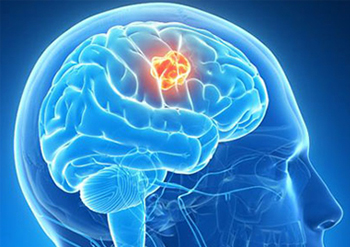

Neuro oncology (Brain tumors)
A brain tumor is an irregular cell growth or mass in the brain. There are several different forms of brain tumors. Some brain tumors are benign (noncancerous), while others are cancerous (malignant). Brain tumors may start in the brain (primary brain tumors) or spread from other parts of the body to the brain (secondary brain tumors).
Types of brain tumors:
Astrocytomas, the most common CNS tumor, grow from tiny, star-shaped cells called astrocytes and can occur anywhere in the brain or spinal cord.
Gliomas of the brain stem are a form of astrocytoma that develops in the part of the brain that regulates many vital functions, including body temperature, blood pressure, breathing, appetite, and thirst.
Meningioma is a type of cancer that develops in the cells that line the membrane that surrounds the brain and spinal cord.
When to contact a doctor:
A growing tumor can compress a nerve or a section of the brain, causing clinical signs and symptoms in the patient. It depends on the size, shape, and location of the tumor. The most famous presentation is:
- You have a headache
- Nausea and vomiting
- Changes in voice, vision, or hearing
- Walking difficulties
- Mood, attitude, or concentration problems
- Memory issues
- Convulsions
Diagnosis and treatment:
The seriousness of the condition is determined by a clinical evaluation of the patient. Further investigation, such as CT Brain/MRI Brain, is performed based on clinical results for a final diagnosis.
After analyzing the scans, a treatment plan is devised. Further treatment, such as surgery, is arranged depending on the type of tumor, its location, size, and the patient's age/general health.
The extracted tumor is sent for histopathological analysis after surgery to assess the tumor's grade. Further treatment, such as radiotherapy or chemotherapy, is determined by the tumor's final grade.
